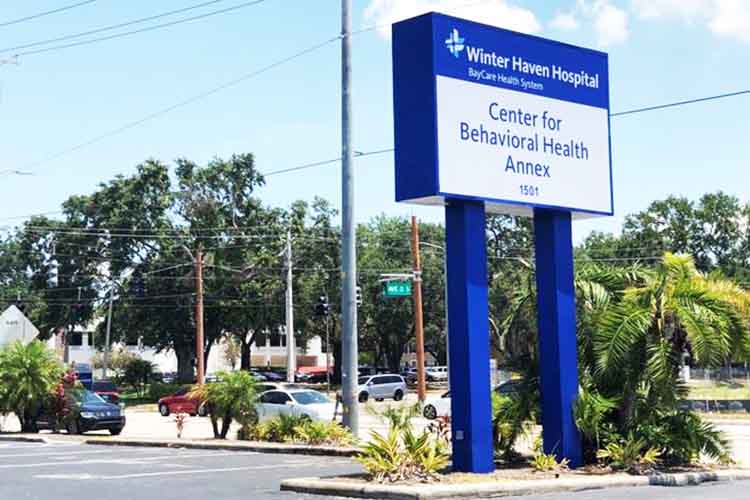Winter Haven Hospital Expands Center for Behavioral Health

For the last 56 years, Winter Haven Hospital’s Center for Behavioral Health (CBH) has been providing outpatient mental health services to the community. The center was established in 1967 as one of the nation’s first comprehensive community mental health centers after President John F. Kennedy passed the Community Mental Health Act. This act and subsequent amendments provided funding and oversight to establish community-based mental health care as an alternative to institutionalization.
Over the years, the center’s services include school-based therapy and in-home therapeutic and case management services home visits provided by the Specialized Community Care Team (SCCT), and a peer-led support group called the Peer Recovery Program. The CBH supplements the services of Winter Haven Hospital’s inpatient psychiatric unit and the Emergency Department’s behavioral health observation unit. Forty-five CBH team members service the area.
This year, the center added space, to be known as the Annex, to house some of its outpatient services. The Annex, located at 1501 First St. S., is on the southwest corner of the intersection of Ave. O and First St., across the street from the CBH and across from Winter Haven Women’s Hospital.
Jeff Ware is a licensed mental health counselor and the clinical director of the Center for Behavioral Health. This year will be his 37th year with CBH.
“Behavioral health needs in Polk have been a consistent focus in our community and is continually emphasized in our Community Health Needs Assessments (CHNA) surveys,” he said. “The ability to expand our services at the Annex and it’s unique environment is going to help us reach our overall goal to make access to resources easier while reducing the stigma around mental health.”
Services remaining at the main CBH building are psychiatric appointments, outpatient therapy and SCCT coordination. Services coordinated from the Annex are case management and care coordination, school-based therapy, in-home children’s therapy, and support for the state’s Helping Families Succeed program that offers temporary aid for families. The CBH’s Peer Recovery Program is now located at the Annex, too.
Prior to the pandemic, the CBH’s Peer Recovery Program held meetings twice a week. During the pandemic, the program paused at first. However, due to community need, the program held virtual meetings. With the program moving to the Annex, the Peer Recovery Program is now available to the community five days a week and offers daily groups, education, support, and activities that promote social skills.
The Annex also houses a “Zen Room” designed by CBH’s new peer recovery specialist to provide a calming atmosphere for patients, team members and anyone who wants to drop-in.
“We had nearly 400 visits in the first three weeks of opening,” said Teresa Even, manager of the services provided by the Annex. “It has been great to expand the Peer Recovery Program. We get daily visitors that appreciate a welcoming environment. We have fun here and we’re excited to host a talent show for our guests during this year’s Mental Health Awareness Day.”
Across five counties (Polk, Pasco, Pinellas, Hernando and Hillsborough), BayCare is the largest provider of behavioral health services, treating more than 12,000 patients a year across all ages.
One specific goal of the added space and access of the Annex is to provide additional resources for patients discharged from the hospital’s inpatient and observation behavioral health units.
“When behavioral health patients leave our hospital, they are provided information about the Peer Recovery program and other services of the Annex,” explains Jeff. “Our hope is that they will check it out and consider participation as part of their continued care plan.”
The Annex was supported by BayCare Health System, which provided nearly $60,000 for furniture, signage, lease payments and utilities for the new facility. It’s also received community support, with a $500 grant from the Knights of Columbus. The Central Florida Behavioral Health Network provides funding for day-to-day operations.
